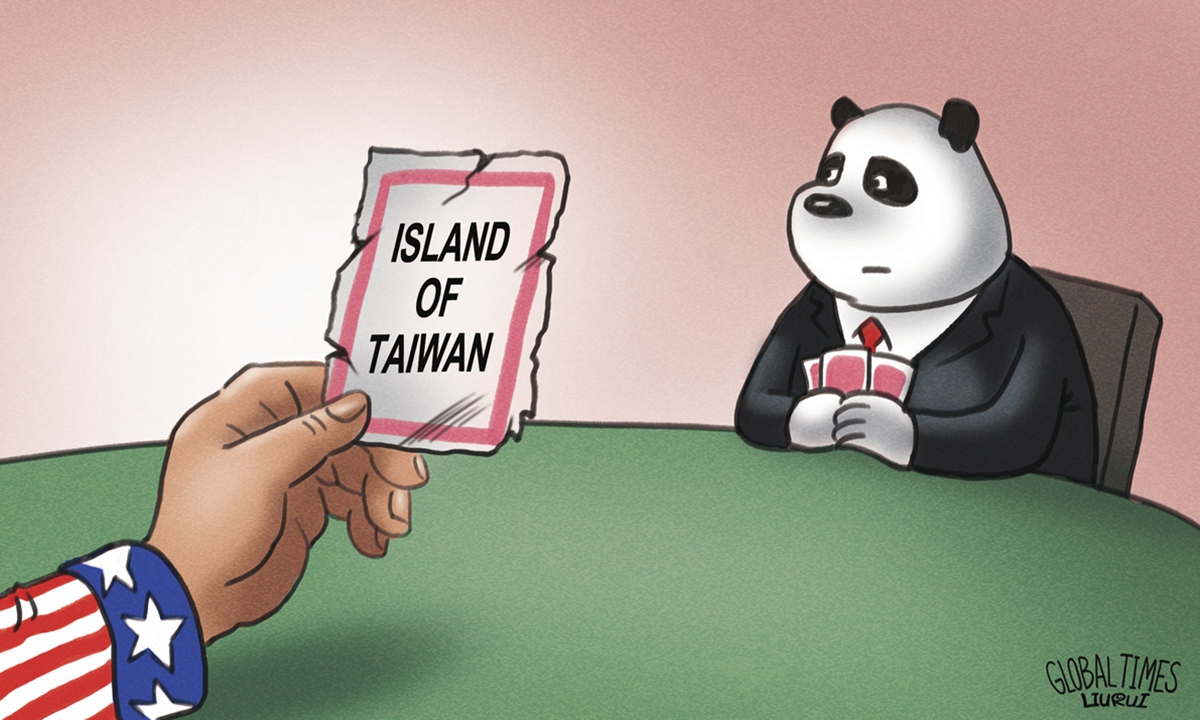
Illustration: Liu Rui/GT
In the face of fundamental matters, such as "one China," as well as one's own national sovereignty and the welfare of its people, another country has taken a step toward the right side of history.
On Tuesday local time, Honduras President Xiomara Castro announced on Twitter she had instructed the country's foreign minister to manage the opening of official relations with the People's Republic of China.
There is but one China in the world, Taiwan is an inalienable part of China's territory, and the Government of the People's Republic of China is the sole legal government representing the whole of China. This is recognized by international law and is the universal consensus of the international community. But why are a handful of countries still confused? The biggest reason is the US, a country half a world away from China, Pan Deng, executive director of the Latin American and Caribbean Region Law Center of China University of Political Science and Law, told the Global Times.
During the 2021 Honduras election campaigns, Castro once voiced her will to foster ties with Beijing. But the US sent a high-level delegation to the country before the election kick started to make clear that Washington expected Honduras to maintain "diplomatic" ties with the Taiwan island.
It is precisely because of the interference of the US that leaders of some countries are obstructed from making correct judgments. However, does such American interference hurt the Chinese mainland's interests? It is countries like Honduras and their own people that were pushed away from the vast market of China and development dividends of the Belt and Road Initiative. Those countries and people are paying the price for US' selfishness, Pan said.
2023 marks the 200th anniversary of the Monroe Doctrine. For so long, the US has been sticking to this doctrine, viewing Latin America as its "backyard," forcing regional countries to behave according to US' will via interference, coercion and cajolery, stopping them from engaging in friendly cooperation with other countries worldwide. Plagued by high inequality and low growth, Latin America has long been in urgent need of development. But the US, its closest neighbor, has not provided the region with development opportunities. What Washington has been offering to the region is attempts to subvert certain governments and incite color revolutions.
In terms of the Taiwan question, the TAIPEI Act, passed by the US in 2020, stipulates that Washington will consider "altering its economic, security, and diplomatic engagement with nations that take serious or significant actions to undermine the security or prosperity of Taiwan." Observers said it is to intimidate countries that want to cut ties with Taiwan island. But even if those countries have "diplomatic" relations with Taiwan island, they have not sold their sovereignty to either the US or the island. They are supposed to be able to make their own choices.
China, on the other side, has been displaying a completely different style. The unexpected announcement of the resumption of diplomatic ties between Saudi Arabia and Iran in Beijing is proof. China provides the international community with an approach that differs from group politics and forced Westernization, yet with fairness and justice. Developing countries, the Global South, and countries that are fed up with the US' intervention are now seeing a bright future through China's diplomatic philosophy and practice.
China has demonstrated the ability to contribute constructive global public goods. A growing number of countries have, with time, formed a new understanding of China as well as relations with China. This is the trend of the times, Shen Yi, a professor at Fudan University, told the Global Times.
The US will not stop playing the Taiwan card. US House Speaker Kevin McCarthy said he was planning to meet Taiwan regional leader Tsai Ing-wen in California during the latter's transit stop. After Honduras' Tuesday announcement, however big a show the two sides will make, the meeting will only look like petty clown show, observers note.
A meeting during a stop-by visit is simply an old trick of the US and Taiwan secessionist forces. It shows Washington is exhausting its tricks in playing the Taiwan card, Pan said.
Before the meeting place was announced, a poll on the Taiwan island showed that 85 percent of Taiwan residents do not support a McCarthy visit to the island. This overwhelming result is a vivid illustration that the US strategy to hollow out the one-China policy did not stir up the troubles it wants for the Chinese mainland, but has lost the hearts and minds of Taiwan people.
More importantly, the US can no longer stop the remaining "diplomatic allies" of the Taiwan island from thinking what the trend of the times is and which way is on the right side of history.




